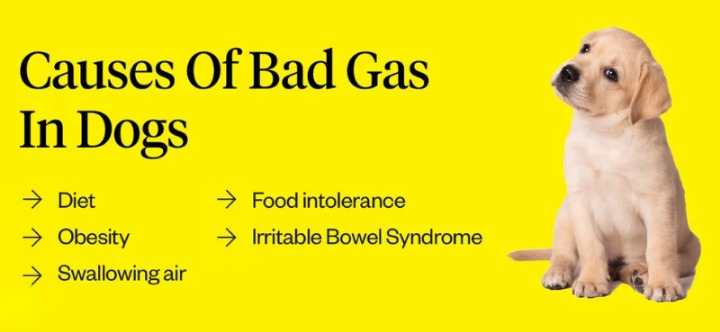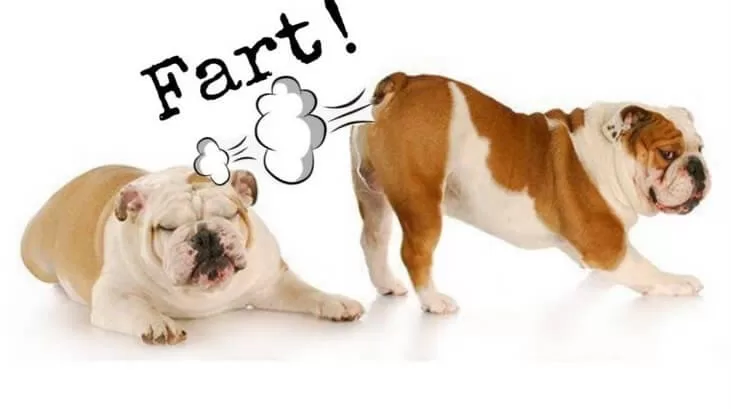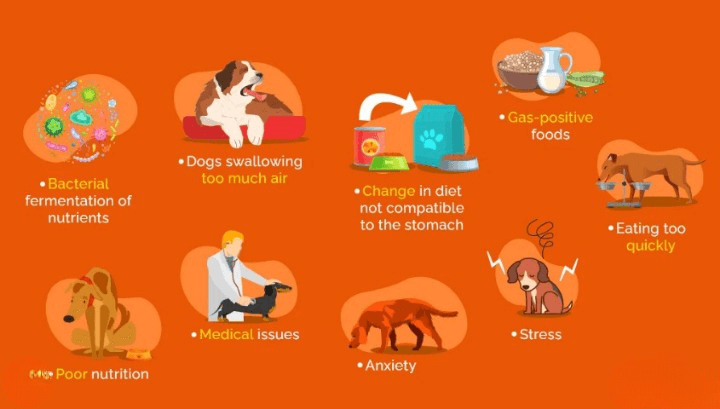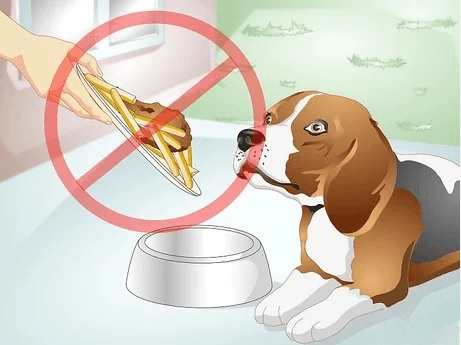Do dogs fart realm of animal behavior, certain bodily functions elicit curiosity and intrigue. One such bodily function is flatulence, commonly known as farting. While this topic may seem trivial or humorous at first glance, it holds scientific significance in understanding the physiological processes occurring within organisms.
This article aims to explore the phenomenon of dog flatulence from an academic standpoint, shedding light on its underlying causes and implications.
By examining available research and expert opinions, this article will delve into questions surrounding dog farting – its normalcy, potential health concerns, and ways to mitigate its occurrence.
Additionally, it will address the social ramifications of dogs releasing gas in various settings. To engage readers further, this article will present fun facts and myths pertaining do dog fart that have permeated popular culture.
Ultimately, the objective of this article is to educate and assist individuals who seek a deeper understanding of why dogs fart and how they can manage or reduce it for their own benefit as well as for those around them.
Key Takeaways
- Dogs fart as a normal part of their digestive process.
- Certain breeds are more prone to excessive flatulence.
- Excessive or foul-smelling gas could indicate health issues.
- Consulting a veterinarian for guidance and diagnosis is important.
The Science Behind Dog Flatulence
The phenomenon of dog flatulence can be elucidated through an examination of the scientific principles underlying canine digestive processes. One key factor that contributes to dog flatulence is diet. Dogs are known for being opportunistic eaters, consuming a variety of foods including commercial pet food, table scraps, and even non-food items. This diverse diet can lead to an imbalance in the gut microbiota, resulting in excessive gas production.

Certain types of food can also play a role in dog flatulence. Foods high in fiber such as beans, broccoli, and cabbage can ferment in the intestines, producing more gas. Additionally, some dogs may have sensitivities or allergies to specific ingredients like grains or dairy products, which can cause gastrointestinal discomfort and increased flatulence.
To alleviate dog farting issues, several remedies can be considered. Firstly, dietary modifications may be necessary to reduce gas production. Switching to a high-quality pet food with easily digestible ingredients and avoiding foods known to cause gas can help regulate digestion and minimize flatulence.
Another approach is ensuring proper feeding practices by providing smaller meals throughout the day instead of one large meal. This allows for better digestion and reduces the likelihood of excessive gas accumulation.
Do Dogs Fart is Normal?
This discussion will focus on the frequency and volume of dog farts, as well as when dog farting might indicate a health issue.
It is important to understand what is considered normal in terms of how often and how much dogs fart, as excessive or abnormal flatulence could be a sign of an underlying health problem.
By examining these aspects, we can gain insight into whether dog farting should be a cause for concern or simply seen as a regular bodily function.
Frequency and Volume of Dog Farts
Dogs emit an astonishing cacophony of flatulence, with a frequency and volume that can leave even the most seasoned observers astounded.
The frequency of dog farts varies among individuals and breeds. Some dogs may pass gas more frequently than others due to factors such as diet, eating habits, and digestive issues.

Excessive flatulence in dogs could be attributed to dietary indiscretion or the consumption of foods that are difficult for them to digest, such as certain grains or dairy products. Other reasons for excessive flatulence in dogs include swallowing air while eating too quickly or having gastrointestinal infections.
It is important to note that if a dog’s farting becomes persistent and accompanied by other symptoms like bloating, diarrhea, or vomiting, it is advisable to seek veterinary attention to rule out any underlying health conditions.
When Dog Farting Might Indicate a Health Issue
Excessive flatulence in canines may serve as a potential indicator of underlying health concerns. While occasional farting is normal for dogs, excessive and frequent gas could be a sign of an underlying issue. Several factors can contribute to dog farting, including diet, gastrointestinal problems, and food allergies.
Certain foods such as beans, dairy products, and high-fat foods can cause increased flatulence in dogs. Additionally, if a dog has digestive issues or an imbalance in gut bacteria, it can result in excessive gas production.

It is important for dog owners to know when to see a veterinarian regarding their pet’s farting. If the dog’s flatulence is accompanied by other symptoms such as diarrhea, vomiting, or changes in appetite or behavior, it could indicate a more serious health problem that requires medical attention. Moreover, if the dog’s flatulence becomes persistent and interferes with its daily activities or quality of life, it is advisable to consult a vet.
In conclusion, while occasional farting is normal for dogs due to various factors including diet and digestion process; excessive flatulence might indicate an underlying health issue that requires veterinary attention. Dog owners should monitor their pets’ farting habits and seek professional advice when necessary.
Tips for Reducing Dog Flatulence
One effective approach to minimize dog flatulence is by implementing certain dietary modifications. There are several ways to prevent dog flatulence and reduce the occurrence of excessive gas in dogs.
One natural remedy for dog flatulence is to feed them a high-quality, easily digestible diet that contains limited amounts of fermentable carbohydrates. This can help reduce the production of gas in the digestive system.
Another way to prevent dog flatulence is to avoid feeding them foods that are known to cause excessive gas, such as beans, lentils, broccoli, cabbage, and onions. These foods contain sugars and fibers that can be difficult for dogs to digest properly, leading to increased gas production.

Additionally, it may be beneficial to feed smaller meals more frequently throughout the day rather than one large meal. This can help prevent overeating and reduce the likelihood of excessive gas formation.
Incorporating probiotics into a dog’s diet can also be helpful in reducing flatulence. Probiotics are live bacteria that promote a healthy balance of gut flora and aid in digestion.
Overall, by making these dietary modifications and incorporating natural remedies for dog flatulence such as a high-quality diet, avoiding gas-producing foods, feeding smaller meals more frequently, and using probiotics when necessary, pet owners can effectively minimize their dogs’ flatulence issues.
The Social Implications of Dog Farting
This paragraph will discuss the social implications of dog farting, focusing on how to handle it in public and deal with any embarrassment or discomfort that may arise.
When dogs fart in public, it can be an awkward situation for their owners. To handle this, one option is to simply ignore it and carry on as if nothing happened, while another approach is to acknowledge the fart and apologize if necessary.
Dealing with embarrassment or discomfort caused by dog farting requires a level of acceptance and understanding that these bodily functions are natural occurrences.
How to Handle Dog Farting in Public
To effectively address the issue of dog farting in public, it is imperative to adopt a strategic approach that ensures minimal disruption to the surrounding environment while prioritizing the comfort and well-being of both canines and their human counterparts.
When handling dog farting in public, dog owners should adhere to proper etiquette guidelines. Firstly, it is crucial for owners to be aware of their dog’s behavior and recognize signs of discomfort or digestive issues that may lead to excessive flatulence.

If a dog does pass gas in a public setting, owners should swiftly clean up any mess left behind and dispose of it properly.
Additionally, it is considerate for owners to move their dogs away from crowded areas when they sense an impending fart or notice unusual smells.
By following these etiquette practices, dog owners can ensure a pleasant experience for themselves and those around them.
Dealing with Embarrassment or Discomfort
Dealing with embarrassment or discomfort when faced with the natural bodily functions of our canine companions can be a challenge, requiring us to navigate public spaces with poise and grace.
Coping strategies can help alleviate any unease that arises from a dog’s flatulence in public. Firstly, acknowledging that dogs fart is essential; it is a normal part of their digestive process. Understanding this fact can assist in accepting and normalizing the situation, reducing feelings of embarrassment.

Additionally, talking to others about the issue can provide reassurance and support. Sharing experiences or seeking advice from fellow dog owners can create a sense of camaraderie and empathy. Engaging in open conversations about dog farting not only reduces discomfort but also encourages understanding among individuals who may have encountered similar situations.
By employing coping strategies like acceptance and communication, we can effectively handle any potential embarrassment or discomfort associated with our furry companions’ natural bodily functions in public settings.
Fun Facts and Myths About Dog Farting
Contrary to popular belief, dog farting is not only a common occurrence, but it also serves as a source of amusement for many pet owners. While some may find it embarrassing or uncomfortable, the phenomenon of dogs releasing gas is actually quite fascinating and has even garnered attention through funny dog fart videos and famous dog farts throughout history.
- Dogs have a unique digestive system that can produce more gas compared to humans due to their diet and the way they digest food.
- Certain breeds are more prone to excessive flatulence, such as Bulldogs or Boxers, due to their body structure.
- The odor of dog farts can vary depending on various factors including diet, overall health, and individual differences among dogs.
Many pet owners have embraced the humor in their furry friends’ flatulence by sharing funny videos online. This lighthearted approach helps create a sense of camaraderie among dog owners who understand that passing gas is just a natural part of being a canine companion.
It’s important to note that while farting is normal for dogs, excessive or foul-smelling gas could indicate underlying health issues. If concerned about your dog’s flatulence, it is always best to consult with a veterinarian for guidance and proper diagnosis.
See Also:
- How Many Toes Does A Dog Have
- How To Stop Dogs Digging Behavior
- Why My Dog Follow Me
- Can Dogs Smell Cancer
- Can Dogs Get Hemorrhoids: Symptoms, Causes, & Treatment
- Can Dogs Get Pimples
- Dog Weight Calculator
- Why Is My Dog Sneezing So Much
- How Do Dogs Get Ringworm
Conclusion
In conclusion, the world of dog farting is a perplexing and intriguing one. Despite its seemingly humorous nature, there is actually scientific reasoning behind this bodily function. While it may be considered normal for dogs to pass gas, there are ways to reduce the frequency and odor of their flatulence.
Additionally, dog farting can have social implications that go beyond mere embarrassment. As we delve into fun facts and debunk myths surrounding this topic, we realize that even in the realm of dog farts, there is much more than meets the nose.
If you can’t find the right dog for you to adopt locally, please consider adopting a dog from Bone Voyage Dog Rescue. We’ll fly with your dog to you.
Frequently Asked Questions
Can dogs fart silently?
Dogs are capable of farting silently. Silent farts occur when the gas is released without creating any noise. Unlike humans, dogs do not have control over their anal muscles, resulting in a lack of sound during flatulence.
What causes a dog’s fart to smell so bad?
The smell of a dog’s fart can vary in intensity due to factors such as diet, gastrointestinal bacteria, and the presence of certain gases. While unpleasant, dog farts are generally harmless to humans.
Do certain dog breeds fart more than others?
Certain dog breeds, due to their anatomy and digestive systems, are prone to farting more than others. This is a natural behavior in dogs and can be influenced by factors such as diet and individual metabolism.
Can a dog’s diet affect the frequency of their farts?
Dietary factors can indeed affect the frequency of a dog’s flatulence. In fact, a study conducted on 100 dogs found that those fed high-fiber diets were more likely to experience increased gas production.
Is excessive dog farting a sign of a health issue?
Excessive dog farting can indicate a potential health issue. It is important to monitor the frequency and odor of the farts, as well as other symptoms such as bloating or changes in appetite, which may require veterinary attention to ensure the dog’s overall health and well-being.
